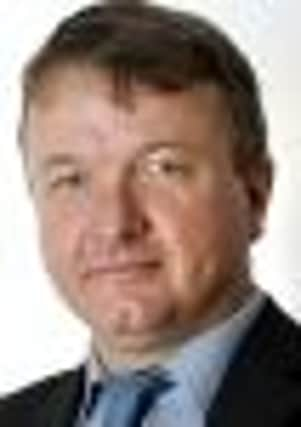Sobering costof drink abuse


This alarming statistic produced by pressure group Alcohol Focus Scotland has been seized upon by an MSP who is urging our Area Licensing Board and its fellow drink-regulating bodies throughout South Lanarkshire to get tougher with the licensed trade.
Commenting on the statistic that alcohol-related problems cost South Lanarkshire’s public purse a colossal sum per year, Jim Hume, Scottish Liberal Democrat MSP for South Scotland, said: “It’s clear that licensing boards in South Lanarkshire need to harness their full and sometimes underused powers.
Advertisement
Hide AdAdvertisement
Hide Ad“The figure of £93.83m – or £301 per head of population – for South Lanarkshire is an eye-watering fee to pay for an unhealthy relationship with alcohol, but it has no bearing on the horrific impact alcohol abuse has on our homes and communities.”
However, putting his `get tough’ call into action isn’t straightforward, as a spokesman for the Licensing Boards of South Lanarkshire told the Gazette; the law imposes strict limits on what these local boards can and cannot do, he pointed out.
“Licensing Boards derive their powers from the Licensing (Scotland) Act and have to formulate policies to promote the licensing objectives set out in that Act, these being preventing crime and disorder, securing public safety, preventing public nuisance, protecting and improving public health and protecting children from harm.
“South Lanarkshire’s licensing boards have in place policies which seek to achieve these objectives. Before such policies are approved by the board, a major consultation exercise is undertaken to gain the views of the inhabitants of the area and these views are taken into account, in so far as the law allows, in the formulation of the policies.”
Advertisement
Hide AdAdvertisement
Hide AdHe said that the boards reviewed their policies every three years and they could now take into consideration when deciding on issuing a new drinks licence if there were already enough – or too many – drinks outlets already in that given area.
He added that South Lanarkshire more than fulfils the requirement of the Act.
It has not just one but two Licensing Standards Officers, touring the area in a `troubleshooting’ role.
“The officers mediate between licenceholders and complainers and visit premises to ensure the statutory requirements are complied with. They also investigate complaints and have the ability to ask for the review of a premises licence if a compliance notice issued to it is not complied with.”
Advertisement
Hide AdAdvertisement
Hide AdIf a drinks outlet has stepped out of bounds and not heeded a warning, then the board can issue a written warning, vary its operating licence, suspend the licence or revoke it entirely.
Personal licence holders can also be personally suspended from operating for six months.
He stressed that new drinks licences are not handed out carelessly.
“When considering applications for new grants of licence the Board must hold a hearing to deal with the application. In considering and determining the application the Board must consider any objections which have been lodged and any observations from statutory consultees to determine whether any of the grounds of refusal laid down in the Act apply. If none of these apply the Board must grant the application and if any of them applies the Board must refuse the application.”
Advertisement
Hide AdAdvertisement
Hide AdA spokeswoman for NHS Lanarkshire confirmed the statistic quoted by the pressure group and MSP and added that tackling the scourge of alcohol abuse was a top priority for it.
She said: “Alcohol and its impact on the health of people in Lanarkshire is a key focus for our health improvement and addiction services.
“Over the past four years our community nurses have delivered more than 30,000 alcohol brief interventions to people drinking at levels harmful to their health.
“We also have in place a new service (Meridian) to help individuals and their families, as well as school-based programmes like the Youth Counselling Service which is now available in every secondary school across Lanarkshire.”
She added that many other agencies, from councils to voluntary groups, were working with the NHS to reduce the terrible costs, both in public cash and human misery.